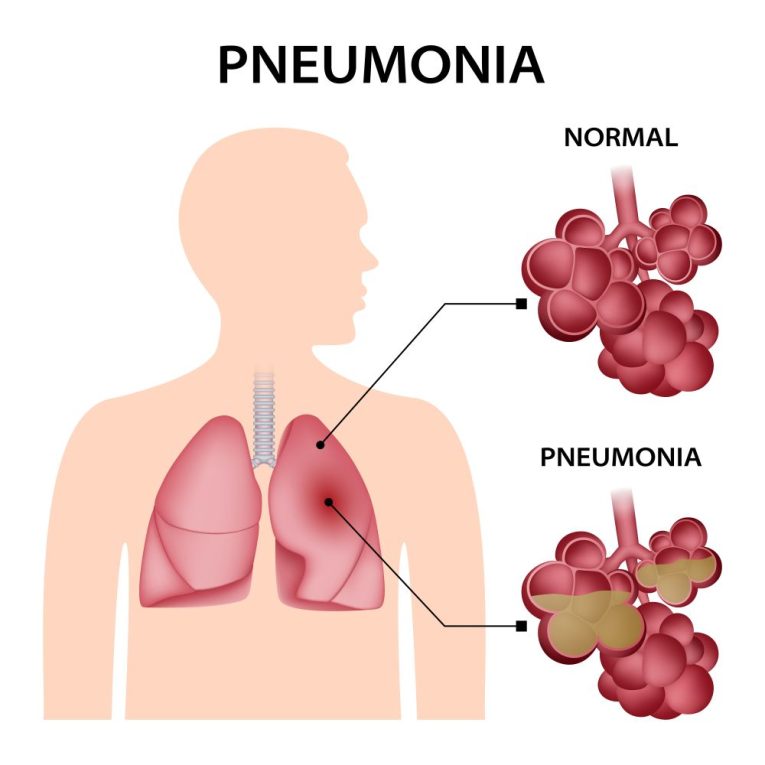Pneumonia is a serious infection that affects the lungs. It causes the air sacs in your lungs (called alveoli) to fill with pus or fluid. This can make it hard to breathe and can lead to fever, cough, chest pain, and tiredness. Pneumonia can affect people of all ages, but it is more dangerous for small children, elderly people, and those with other health problems.
Note: Take medicines as per the doctor’s prescription only.
What Causes Pneumonia?
Before pneumonia treatment, doctors first try to find out what caused it. Pneumonia can be caused by:
- Bacteria (most common in adults)
- Viruses (more common in children)
- Fungi (in people with weak immune systems)
Knowing the cause helps doctors decide which treatment will work best.
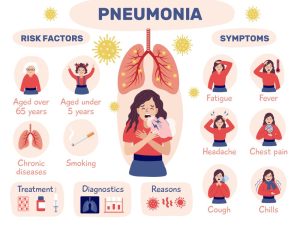
1. Medications for Pneumonia
A. Antibiotics (for bacterial pneumonia)
If bacteria are the cause, doctors prescribe antibiotics. These medicines kill the bacteria and help you get better. Some commonly used antibiotics for pneumonia include:
- Amoxicillin or Augmentin
- Azithromycin
- Levofloxacin
Most people start feeling better within 2–3 days, but it’s important to finish the full course of antibiotics.
B. Antiviral Medicines (for viral pneumonia)
If a virus is the cause, antibiotics won’t work. In some cases, antiviral medications for pneumonia are given, such as:
- Oseltamivir (Tamiflu) – for flu
- Remdesivir – for COVID-19
In many cases, viral pneumonia gets better on its own with rest and home care.
C. Antifungal Medicines (for fungal pneumonia)
This is rare and usually seen in people with very low immunity. Doctors may prescribe medicines like:
- Fluconazole
- Amphotericin B
These antifungal medicines for pneumonia are usually given in hospitals and may be needed for a long time.
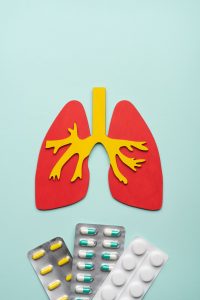
2. Supportive Treatments
No matter what causes pneumonia, certain pneumonia supportive therapy helps reduce symptoms and make recovery easier.
A. Oxygen Support
Some people with pneumonia may have low oxygen levels. In such cases, they may need oxygen through a mask or a tube in the nose. Very sick patients may need to stay in the ICU.
B. Fever and Pain Relief
Medicines like paracetamol (acetaminophen) or ibuprofen help bring down fever and reduce pain.
C. Cough Medicines
Doctors may give expectorants to help loosen mucus and make coughing easier. But strong cough syrups that stop cough should be avoided unless your doctor recommends them.
D. Hospital Treatment
You may need to stay in the hospital if you:
- Have trouble breathing
- Have low oxygen levels
- Are very old or very young
- Have other severe health conditions
In the hospital, you may get fluids and antibiotics through a vein (IV), and your condition will be closely watched.
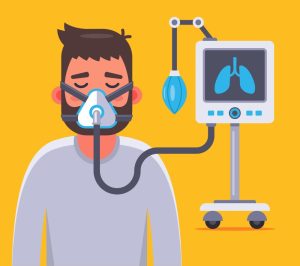
3. Home Remedies for Mild Cases
If your pneumonia is mild, or if you are recovering at home, these pneumonia treatments at home can help you feel better:
A. Drink Plenty of Fluids
Water, soups, and herbal teas help loosen mucus and keep your body hydrated.
B. Take Rest
Your body needs energy to fight the infection. Get enough rest and sleep.
C. Steam Inhalation
Breathing in steam from hot water (with or without eucalyptus oil) can help clear your nose and chest.
D. Warm Compress
A warm cloth or hot water bottle on the chest may help reduce chest pain.
E. Healthy Foods
Eat light but nutritious meals. Warm liquids like turmeric milk or ginger tea may help soothe the throat and boost immunity.
Note: Home remedies should not replace medicines. Always follow your doctor’s advice.
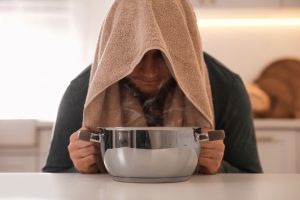
4. When to See a Doctor Immediately
Don’t wait too long to get help if you or someone you know has:
- High fever for more than 3 days
- Difficulty breathing
- Chest pain while breathing or coughing
- Bluish lips or fingers
- Feeling confused or sleepy
These are warning signs and may mean pneumonia is getting worse.
5. Pneumonia in Children, Elderly, and Sick People
A. In Children
Children with pneumonia may breathe fast, cough a lot, or refuse to eat. They may also have chest pulling or noisy breathing. Some may need to be treated in the hospital.
B. In the Elderly
Older adults may not have fever. Instead, they may feel weak, confused, or very sleepy. Because their immunity is weaker, they often need more care.
C. In People with Other Illnesses
People with diabetes, cancer, kidney disease, or weak immune systems may get very sick with pneumonia. They need to start treatment quickly and may stay in the hospital longer.
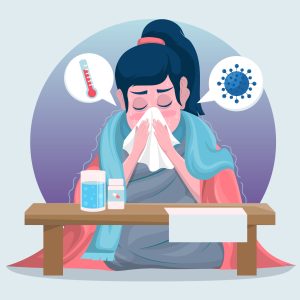
6. How to Prevent Pneumonia
A. Get Vaccinated
Vaccines help prevent pneumonia. Important ones include:
- Pneumococcal vaccine – for children, people above 65, and those with chronic illnesses
- Flu shot – once every year
- COVID-19 vaccine – to reduce risk of viral pneumonia
B. Good Hygiene
- Wash your hands often
- Avoid touching your face with dirty hands
- Cover your mouth when coughing or sneezing
- Use a mask if you’re sick or in crowded places
C. Healthy Lifestyle
- Stop smoking – smoking damages your lungs
- Eat healthy foods
- Exercise regularly
- Manage other illnesses like diabetes or asthma.
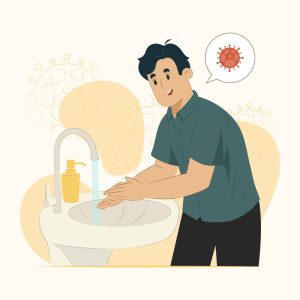
7. How Long Does Recovery Take?
Recovery depends on how bad the pneumonia was and your overall health.
- Mild pneumonia – may improve in 1 to 2 weeks
- Severe pneumonia – can take 1 month or more
- Cough and tiredness – may last a few weeks even after you feel better
To recover well:
- Finish your medicine completely
- Go for follow-up visits
- Avoid pollution and dust
- Take it easy; don’t rush back to work or school
Conclusion:
Pneumonia can be scary, but with the right treatment, most people recover completely. The key is to get medical help early, take medicines as prescribed, and follow healthy habits. Whether it’s through antibiotics, antiviral medicines, or home care, there are many ways to fight pneumonia and get back to good health.

